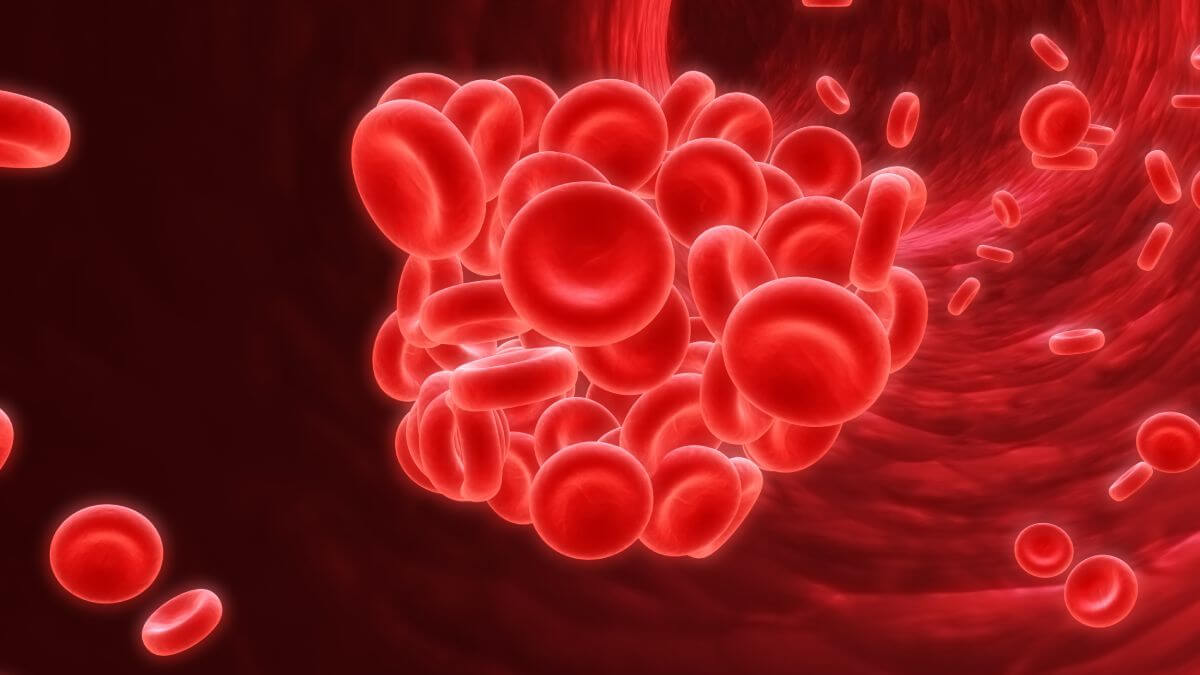Given that more than 30,000 Australians develop blood clots each year, the need for blood thinners is very important. In serious cases, blood clots can lead to death. Blood thinners can, and do, save lives.
But thinning the blood comes with its own risks. The need for your blood to be able to clot, when you sustain a cut or other injury, is vital. Without clotting its extremely difficult to stop blood loss.
Now, though, a new development in blood thinners, using a compound known as MPI 8, could provide the solution.
The full name of MPI 8 is macromolecular polyanion inhibitor 8. Its ‘magic’ property is that, rather than targeting all of the body’s available clotting pathways, it focusses on just one.
By targeting and inhibiting just one of the molecules involved in blood clotting, MPI 8 breaks up and prevents clots. This in turn drastically reduces the risk of unwanted bleeding.
Why are blood clots so dangerous?
This is perhaps best answered by looking at the mechanism of clotting. Blood clots form when parts of your blood thicken, forming a semi-solid mass inside a vein. They can form in veins anywhere, including in the small veins under your skin or veins deep inside your body.
Once a blood clot (known medically as a ‘venous thromboembolism’) forms, it can actually move through your veins. As it travels along your veins with the rest of your blood it can become lodged in a particular place. A slightly narrower section of vein could be one such place.
Just as snug-fitting stone in your hose can reduce or prevent water flow, so too can a clot limit blood flow. Restricted blood flow can lead to series health events such as stroke, heart attack or pulmonary embolism.
For those who have an elevated risk of clotting, blood thinners can be a life saver. They are used extensively in hospitals, especially after major surgery. Even so, blood clots account for an estimated 10 per cent of all hospital deaths in Australia.
Finding a balance with blood thinners
So the importance of preventing blood clots ending up in the wrong place in your body is quite clear.
On the other hand, the dangers of your blood being too thin are also real. The major potential side-effect of blood thinners is, unsurprisingly, bleeding. If the bleeding is not easily stopped, things can quickly escalate.
Australian health guidelines urge seeking immediate medical attention for blood thinner users who’ve had a fall or hit their head. This is because there may be internal bleeding that will not stop.
Right now, there is no effective antithrombotic drug available that is not complicated by a bleeding risk. But MPI 8 could be change that. “This is very, very interesting and exciting work,” said the study’s lead author, Dr Jay Kizhakkedathu.
Neurosurgeon at the Pacific Neuroscientific Institute Dr Adi Iyer summed up the importance of the research. “The real advance of the [new] study is they’ve identified potential molecules that work on what’s called the contact pathway” he said. “And this is a pathway that prevents the formation of blood clots, yet the inhibition of which will not increase the risk of bleeding.”
Dr Iyer was not involved in the study, which was published in Nature.
The research is still at an early stage, with mice being used to test their theories. The authors have now applied for a patent for MPI 8, and plans trials with larger animals, and eventually humans.
Do you take a blood thinner? What do you think of this new development? Let us know in the comments section below.
Also read: Nine things you should know if you’re taking blood thinners


A blood clot is a thrombus- its formation is thrombosis. Thromboembolism is the movement of the clot to another part of the body.
I have been on blood thinners for a month due to emboli in my lungs (heart failure). One thing not mentioned is the risk of overdosing accidentally on blood thinners, I went from 2 a day for 3 weeks to a reduced dose of 1 a day, the doctor was very firm on warning me never to take 2 a day, it could cause death. I also like to garden and sometimes get cuts and this is a worry so I would welcome something that wasn’t as dangerous.